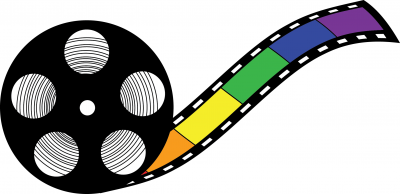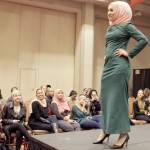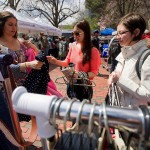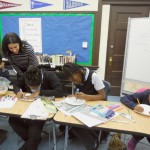
Boston’s annual LGBT film festival is back, and this time, it’s Wicked Queer.
The festival, which began Thursday and runs through April 10, has played under a wide range of titles throughout its history. Known as the Boston LGBT Film Festival until 2015 — and before that, the long-winded Boston Gay and Lesbian Film and Video Festival — the event originated in South Station Cinema, a now-closed gay male pornography theater. The first incarnation of the festival ran under the name Boston Premier Gay Film Festival in 1984.
What began as a handful of “vaguely gay-oriented” films has since blossomed into the fourth-oldest LGBT film festival in North America.
This is the festival’s first year running under the catchy, new Wicked Queer branding. The change follows a shifting dialogue within the LGBT community, which in recent years has placed a greater emphasis on the queer identity. Members of the festival’s all-volunteer staff said they see the new branding as a more inclusive reflection of what Wicked Queer has to offer and the diverse population it represents, rather than just two categories of “gay” and “lesbian.”
“In the last 10 years or so, we have a lot of different identities coming up more and more — intersex, questioning, genderqueer — and this [title] kind of brings everyone to the table so everyone has the opportunity to be involved and have their own stories told,” said Shawn Cotter, who oversees operations and print traffic at Wicked Queer.
Now in its 32nd year, Boston’s LGBT film festival is no stranger to change, and its title isn’t the only thing to have undergone a wicked transformation.
James Nadeau, executive director of Wicked Queer, said he believes change is a fundamental component of an event that serves such an adaptable community of people.
“We are driven by what we show, and queer stories shift year by year,” Nadeau said. “Our identity has to be a little bit amorphous, because one year it’ll be about gay weddings and the next year it might be about politics. So you have to shift and go with the flow and not be so rigid in how you think about yourself.”
One of the biggest transformations the festival has undergone was a universal one — the digital revolution. In the last decade and a half, the proliferation of Internet access and mobile phones armed with cameras has put the power of storytelling within almost anyone’s reach. This techno-cultural shift, in turn, expanded the breadth of available films for Wicked Queer to showcase, and many of them are stories that have never been told.
“When we went online with our submissions process in 2010, because there’s a certain degree of anonymity when you’re uploading your film online, we started getting films from places where it’s very, very difficult to be out and gay,” Nadeau said. “Places like China, the Middle East, Russia. So if anything, that’s been the greatest shift for us, because now all these stories are emerging from places where, before, people had no voice.”
Despite its fresh twist, the jury is still out on whether the festival’s new “Wicked Queer” title has made a name for itself on Boston University’s campus.
Within Q Collective, BU’s queer activist collective, most members had only heard about the festival in passing. But Autumn McArthur, a senior in the College of Arts and Sciences and a member of the Q Collective e-board, said she appreciated the idea of an LGBT-specific film festival.
“I think it’s really cool, because there’s not a lot of times I can go to the movies and see something that reflects my romantic experiences,” McArthur said. “It’s nice to see yourself on screen.”
Lauren LeBlanc, a junior in the College of Communication and Q Collective member, echoed a similar appreciation for the concept but had her own doubts about the name change.
“It’s definitely a catchier name, and it’s not just specific to queer people but also to Boston,” LeBlanc said. “But I do have some reservations about straight people using the queer label that way. It’s still something that’s in the process of being reclaimed from being a slur, and I don’t know if everyone will understand that.”
As Wicked Queer continues to adapt its own voice to match that of the community it attempts to represent, the number of potential stories to tell continues to grow. Nadeau and Cotter both expressed an interest in including more films with stories that haven’t reached the mainstream yet.
“I would love us to do more outreach to people of color,” Cotter said. “We’re OK right now, but I would love to see more programs doing niche curations, like gay Muslim films, or South American lesbian documentaries — things that are really specific and really interesting that could bring those stories to the audience.”
A previous version of this story described Wicked Queer as the fourth-largest LGBT film festival in North America rather than the fourth-oldest. This correction is reflected in the story above.




